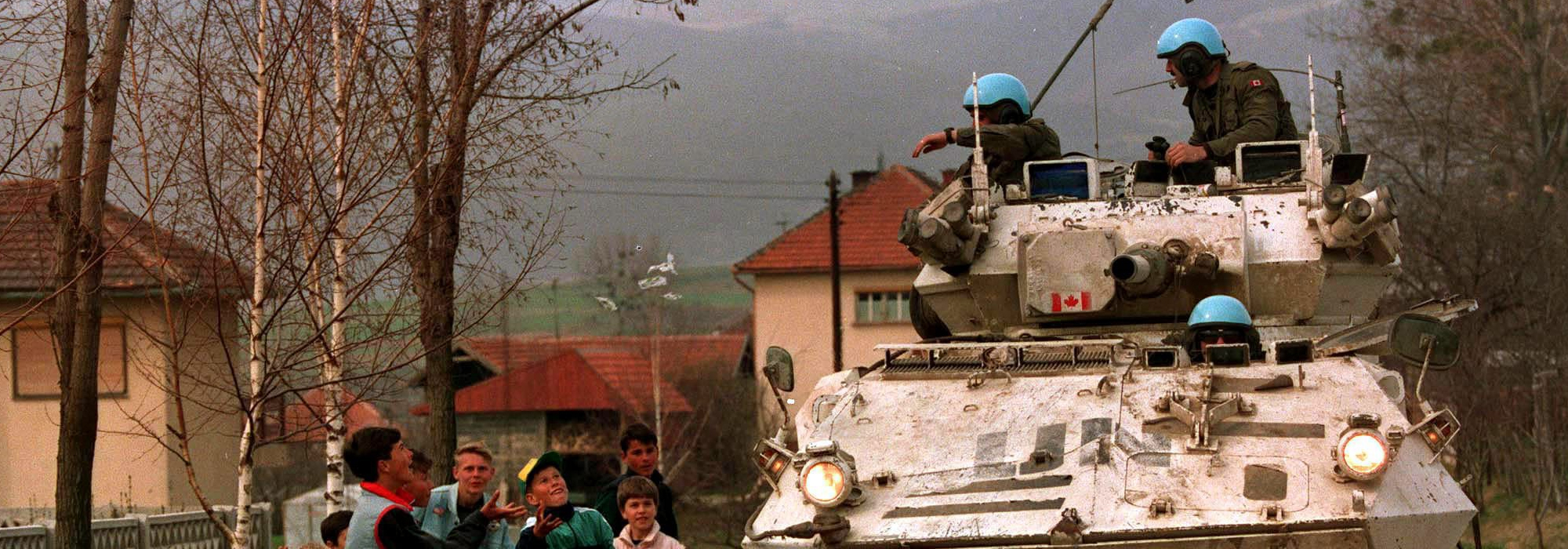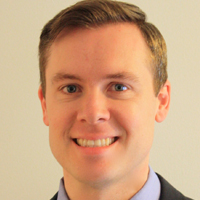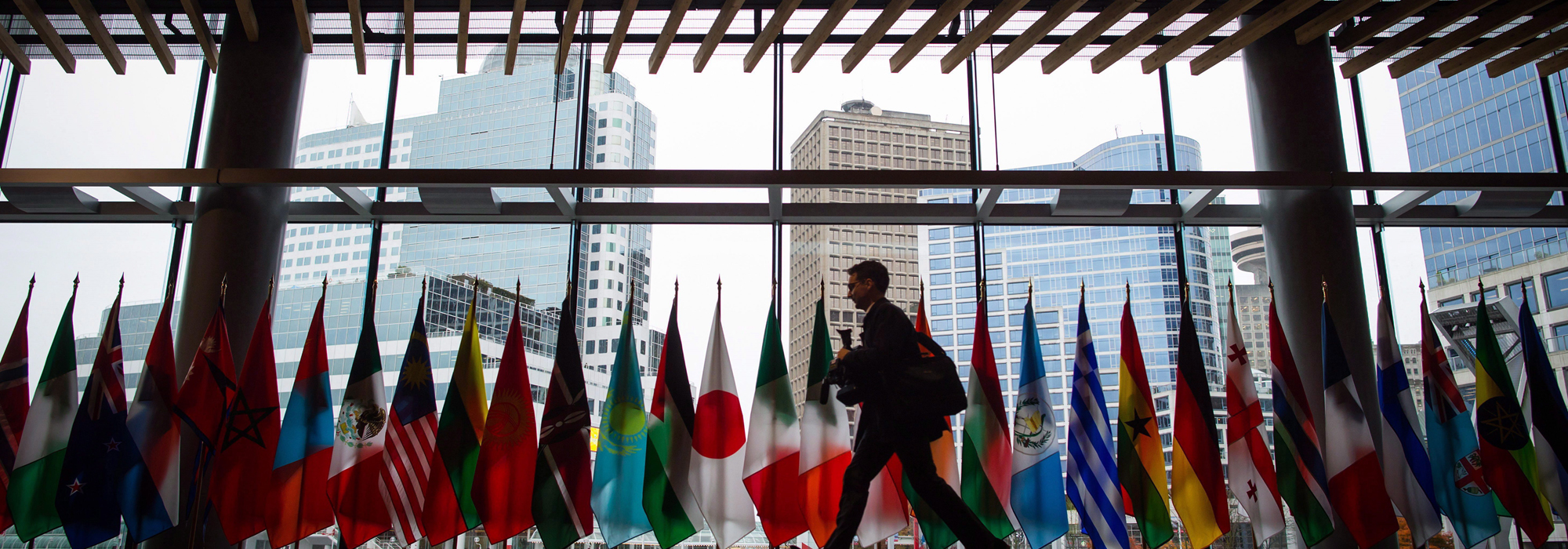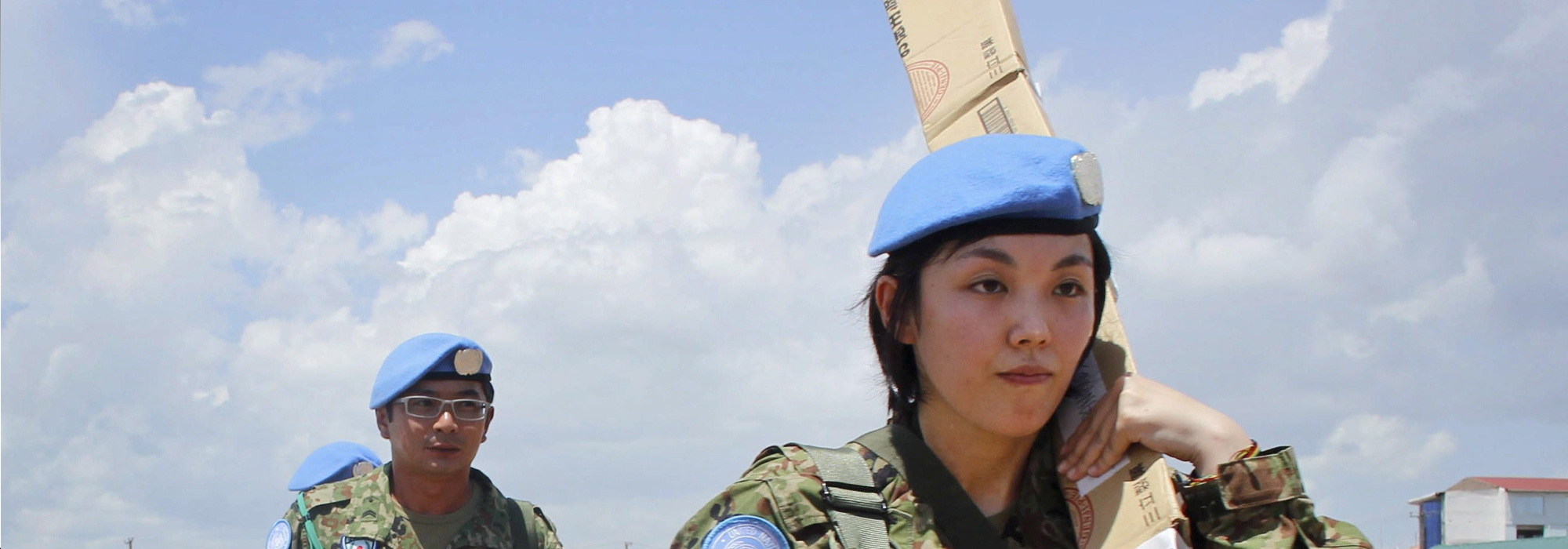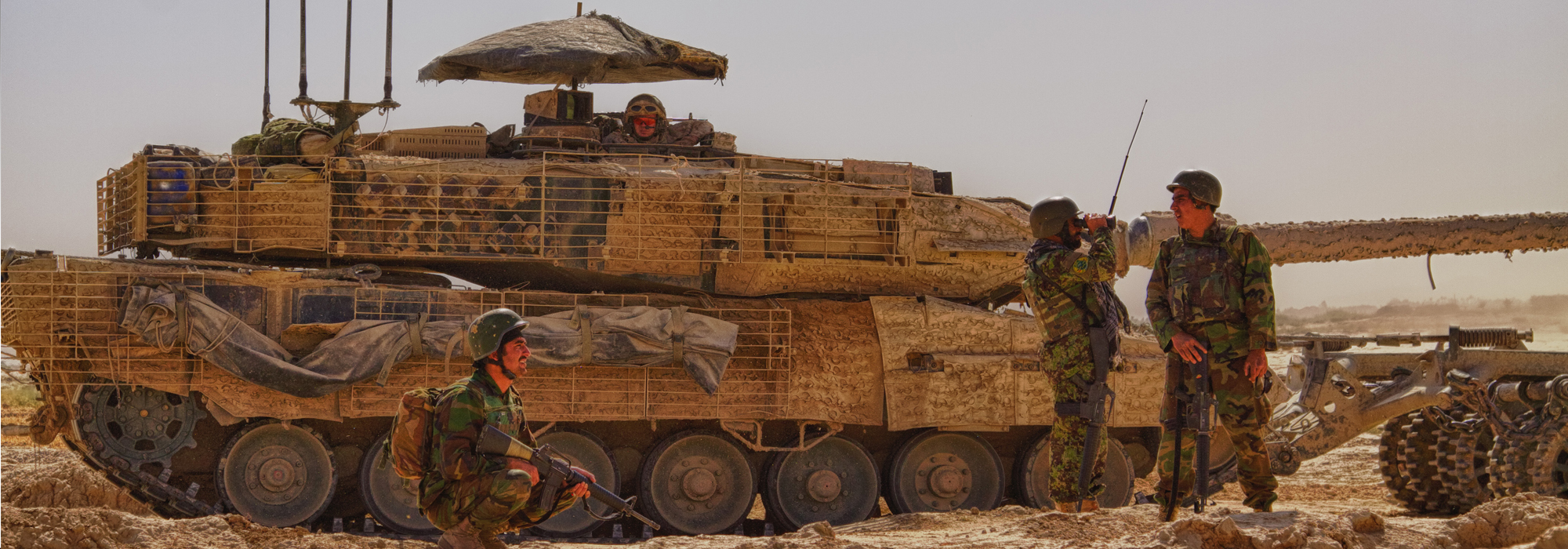
On October 20, just a few weeks before the start of the UN Defence Ministerial in Vancouver, the 60th anniversary of Lester Pearson’s being awarded the Nobel Peace Prize passed with little fanfare. Pearson was given this distinction for his role in the international action that resolved the Suez Crisis and created the United Nations Emergency Force (UNEF), that world body’s first-ever peacekeeping operation. This anniversary does, however, offer a moment to look back on Canada’s peacekeeping past and to look ahead to how Canada might reengage with this vital UN activity.
The Suez Crisis grew out of the long-standing colonial influence of Britain and France in the operation of the Suez Canal, and the decision by Egypt to nationalize the canal on July 26, 1956. British Prime Minister Anthony Eden was incensed at Egypt’s President Gamal Abdel Nasser and secretly planned, along with the governments of France and Israel, for the latter to engage in open warfare with its neighbour. On October 29, 1956, the Israelis sent an invasion force into Egypt. The French and the British quickly landed an Anglo-French force in the Canal Zone. The actions of Britain and France infuriated the United States and Canada, among others, whom they had conveniently not bothered to inform about their plans.
These events are best known in Canada for the role played by Pearson, then secretary of state for external affairs. Pearson had been an important member of Canada’s UN delegation since 1945 and had served as president of the General Assembly in 1952. In the early morning hours of November 2, he rose in the General Assembly and told his audience that the world needed action, “not only to end the fighting but to make peace.” He then made his case for the creation of an international peace and police force that Canada would help supply with troops and equipment. When the resolution calling for the creation of UNEF passed unanimously, an act of inspired diplomatic manoeuvring became a reality. It was a timely solution to an international conflict that was growing tenser by the hour, as the United States and the Soviet Union both denounced the British and the French despite their own Cold War antagonism.
Daily newspapers across Canada quickly framed UNEF as either a symbol of Canadian independence or a sign of Canada’s having turned its back on its “mother countries.” In Conservative-supporting papers, Pearson was called a “chore boy” of the Americans, and the signallers who were selected to be the Canadian contingent were derided as the “1st Chairborne” because they were not traditional soldiers.
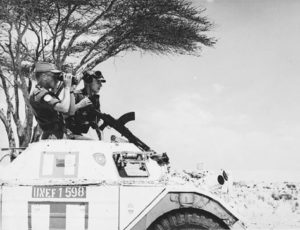
Few people, Pearson included, would have guessed how strongly some Canadians would come to align their national identities with peacekeeping in the decades that followed. Indeed, in the fall of 1956, many Canadians who were polled seemed to feel that although Pearson’s actions at the UN were laudable, Canada’s foreign policy should not have deviated from the British line. The Progressive Conservatives would make considerable political hay out of this issue and it became one of the reasons the Liberals lost the June 1957 federal election.
Almost all of these criticisms disappeared when Pearson won the Nobel Peace Prize that fall. By that time, UNEF had shown itself to be a competent and capable force that had helped to reopen the Suez Canal to shipping and had kept the Egyptians and the Israelis from being openly at war. John Diefenbaker’s newly elected Progressive Conservative government also embraced Canada’s UN engagement as a functional one, meaning that no political party in Canada opposed the country’s peacekeeping role. Pearson was hailed internationally for his role in bringing an end to the Suez Crisis, and he parlayed this acclaim into his bid to become the next leader of the Liberal Party. He remains the only Canadian to receive the Nobel Peace Prize.
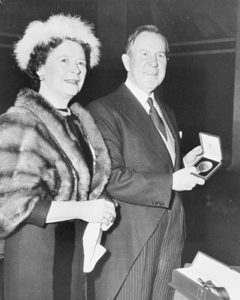
Subsequently, Canada’s peacekeeping past, and more specifically Pearson’s triumph during the Suez Crisis, became shorthand for a high point in the country’s history. The 1950s came to be considered the height of Canadian international influence, and Pearson’s efforts a marker of a real “golden age” in foreign policy, when the other countries of the world listened to what we thought, and we were capable of backing up this talk with helpful action. This view of Canada’s position in the world was taught in most English and French Canadian high school classrooms. This history contributed to peacekeeping becoming a marker of Canada’s national identity, particularly outside of Quebec.
Many Canadians continue to regard UN peacekeeping as the most important international action this country undertakes. The actions of Lester Pearson in the Suez region, Lewis MacKenzie in the former Yugoslavia and Roméo Dallaire in Rwanda, as well as Canada’s leading role in the adoption of the Anti-Personnel Landmines Convention, provide reminders of how Canada’s international identity is tied to the successes and failures of the UN. These factors provide some indication that the renewed government interest in the UN — in a peacekeeping capacity as well as one where this country devotes its energies to aiding international development, among other issues — is still welcomed by many Canadians.
The shared timing of the 60th anniversary of Pearson’s Nobel Prize and the Defence Ministerial, therefore, provides a moment in which to address Canada’s affinity for peacekeeping from a number of perspectives. The Defence Ministerial will see attending nations being asked to make new pledges and contribute to UN peacekeeping reform efforts, hopefully improving the organization’s capacity to plan and perform where needed around the world. Among the more welcome areas of emphasis are targets for increased female participation in all aspects of peace building.
Canada’s government has openly pledged increased support for peace operations, to the tune of 600 members of the Canadian Forces, but has, to this point, balked at sending them abroad. It is time it did so. Current peacekeeping operations in need of assistance include those in Mali, Central African Republic, South Sudan and Colombia. While peacekeeping might represent a pillar of this country’s national identity, it is for others the difference between life and death.
The collective energy of the world is necessary to fix the myriad of problems that continue to plague almost every department of the UN, and peacekeeping is no exception. So let’s get to work. As Pearson often noted, the UN is only as good as its members will allow it to be.
This article is part of the special feature Peacekeeping Reimagined
Photo: Canadian peacekeepers in Bosnia in March 1994. The Canadian Press/Tom Hanson.
Do you have something to say about the article you just read? Be part of the Policy Options discussion, and send in your own submission. Here is a link on how to do it. | Souhaitez-vous réagir à cet article ? Joignez-vous aux débats d’Options politiques et soumettez-nous votre texte en suivant ces directives.




